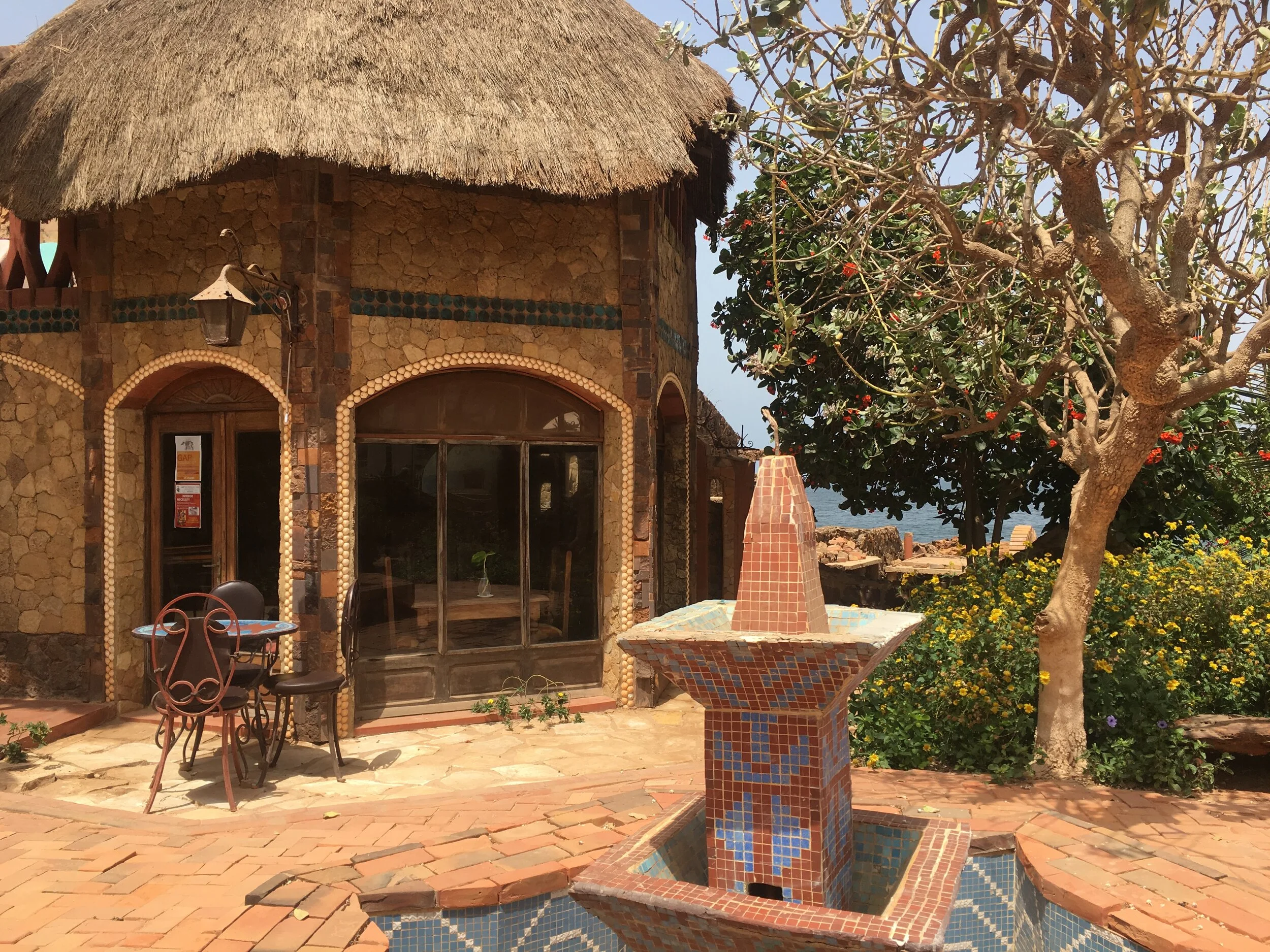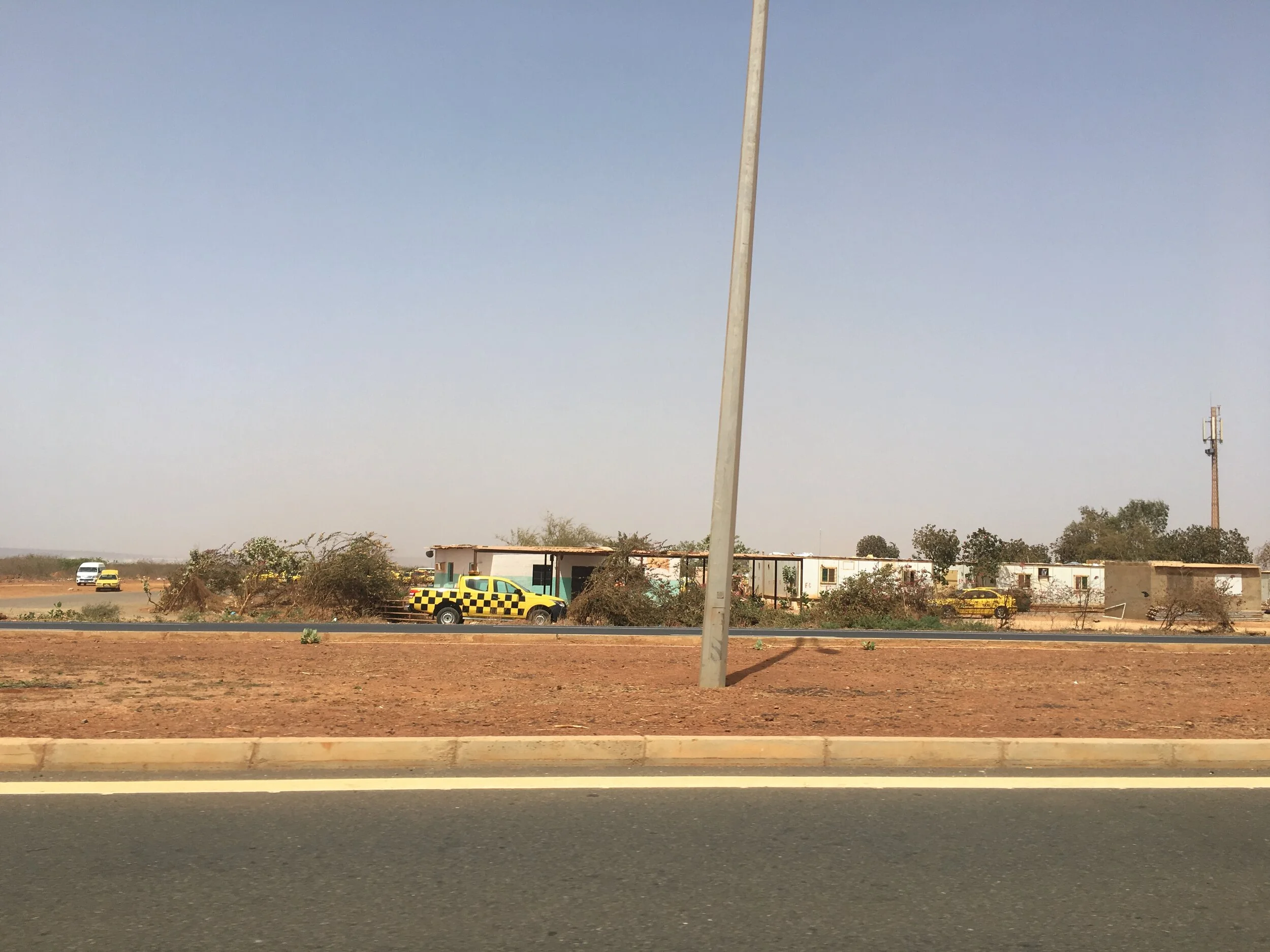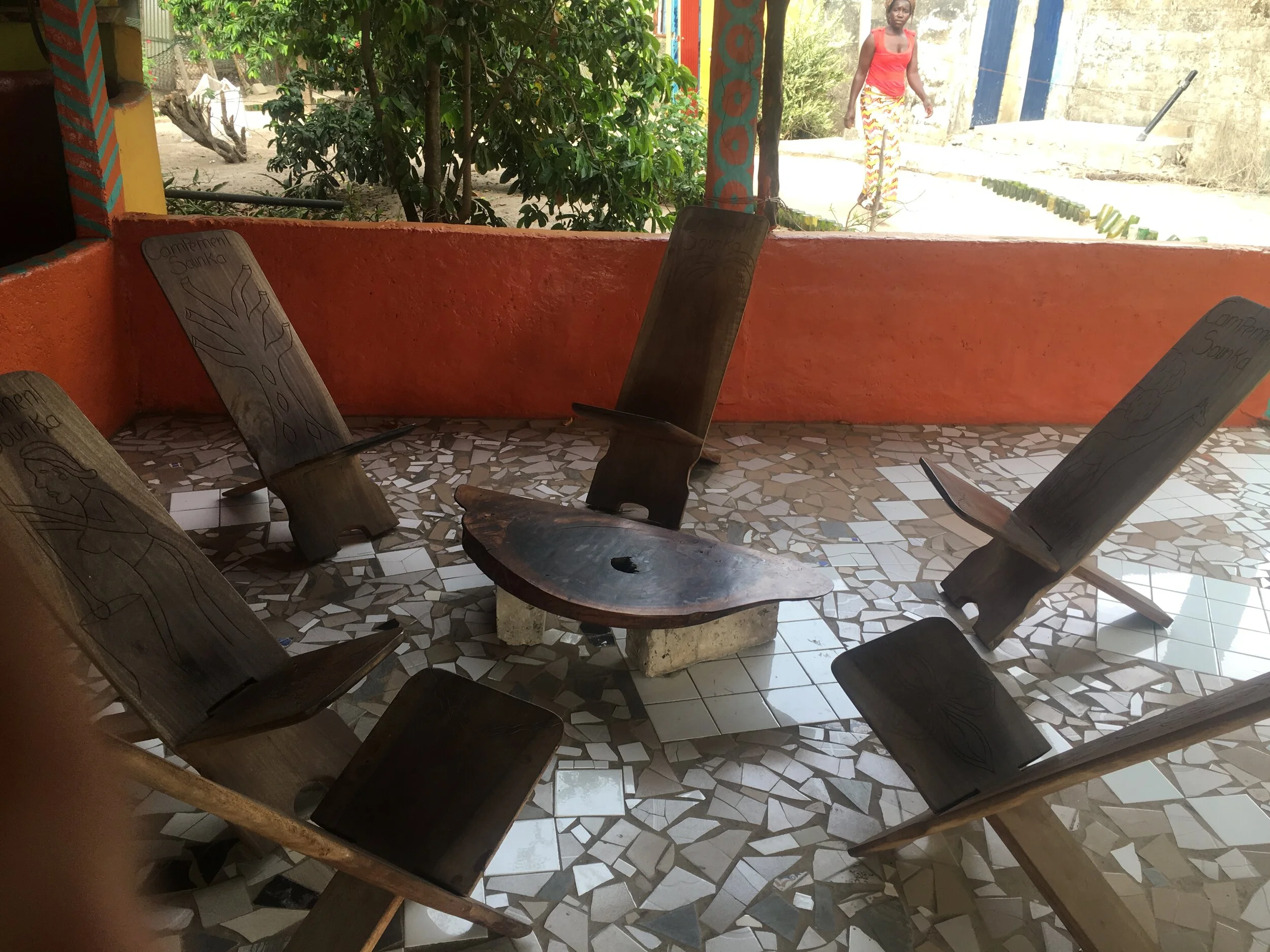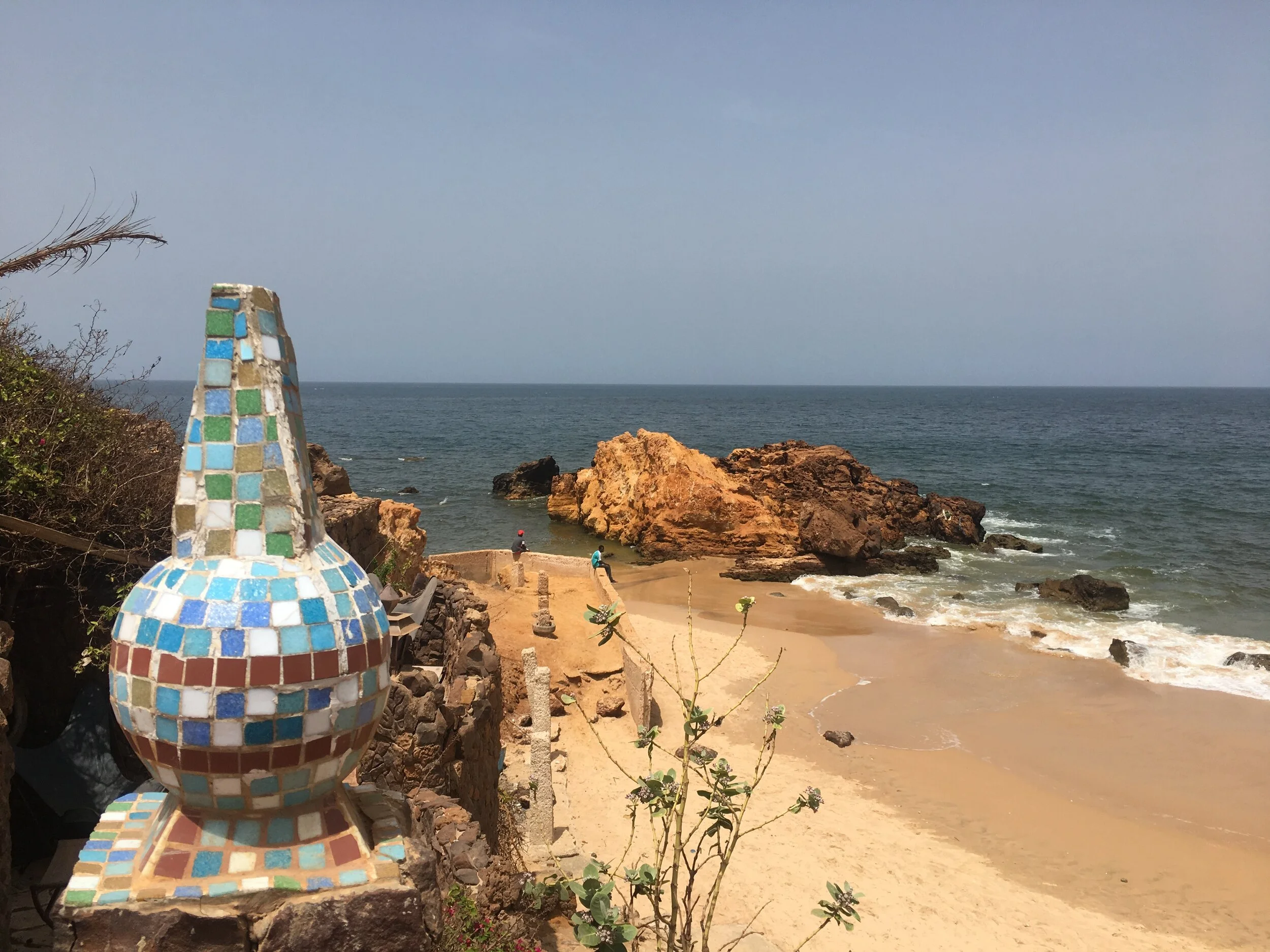Sobo Bade in Toubab Dialaw, Senegal
The courtyard of Sobo Bade
Sobo Bade was founded in the 1970s by Hatian renaissance man Gérard Chenet who moved in Senegal in 1964. He’s 95 years old and still lives with his wife in a house at the center of the “Mar” side of what is now a sprawling seaside resort. “Sobo” is the voodoo god of storms and “Badé” is the goddess of lightning. The architecture, designed by Chenet himself is constructed of volcanic rock, marble, thatch, bamboo and mosaic ceramic and shells. A restaurant and terrace overlook the ocean and two steep staircases allow for easy (if precarious) beach access.
We are staying on the “Jardin” side of the resort. The two halves are separated by a dirt road lined with women selling mangoes, bananas, batik dresses, leather shoes and jewelry. They are persistent but not forceful as they lift their heads from the bamboo mats they lie on, “Madame, how are you? Just take a look? Ok, come back later,” in French.
One woman speaks some English and tries to teach me some Wolof. When two Senegalese here are speaking together they, without fail they speak in Wolof, the other national language of Senegal and the language of the predominant ethnicity in the northern part of the country. There is some English, but it’s limited and broken and Megan’s French is allowing us to have a cultural exchange I could never manage on my own.
The cliffs and beach in Toubab Dialaw
A horse-drawn cart picks up the trash in the morning and takes it away down the dirt road. The village is made up of half-finished concrete and cinderblock buildings that contain hair salons, restaurants, shops, tailors and clothing boutiques. The signs for the shops are painted right onto the stucco with pictures of scissors, food, shoes, and sewing machines.
Sobo Bade has running water but many of the surrounding homes do not and the children are sent out to fetch water from the well. We’ve been filtering the water from the sink with my camp filter and we’ve had no problems. It takes a few minutes to fill my 16oz water bottle and while it’s a bit annoying to do several times per day, I’m grateful I didn’t grow up having to haul water.
Children gather water from the two blessed wells.
There are two wells on the beach behind Sobo Bade that an Imam blessed. Now they are said to be pure and good to drink, even for westerners, though we didn’t test our luck. A man named Momo, who we met on the beach, told us about the wells. Momo is 37 and has taught and performed dance in New York, California and all over Europe. Sometimes he teaches at Sobo Bade and he showed us videos of a big group of Americans who came to learn for a month. They stayed and studied at the Théâtre l’Engouement, the second, larger location of Sobo Bade that houses up to 40 students. They have a 750 seat theater and an ecological pool on the premises.
An unfinished house in Toubab Dialaw.
Momo speaks Wolof, French and a bit of English. He took us to his restaurant which translates to The Place of the Fishermen, as it’s just outside a fishing village. He showed us dance videos and answered questions about Senegalese life. He told us the average age of marriage is 20 and that he lives with his two sisters and two brothers and their spouses in a house next to their parents’ house. He lives nearby and spends his days playing soccer on the beach and training with his friends, bringing his “customers” AKA us, to his restaurant, and teaching dance.
It’s well known that Chanet’s artists commune has turned Toubab Dialaw from a sleepy fishing village into the bustling artists community it is today. Locals all know the resident artists and employees as well as Chenet and his wife. They’ve brought a lot of tourism dollars and employment opportunities to Toubab Dialaw in a country with low employment and few high paying job prospects.








